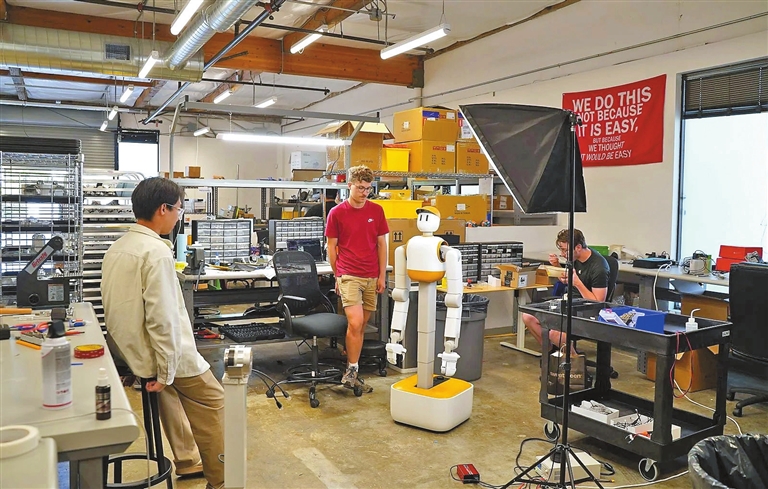
SUNDAY, an AI startup founded by Stanford Ph.D. roboticists Tony Zhao and Cheng Chi, announced its robot Memo on Wednesday. Memo is a personal robot engineered to help families reclaim time spent on chores like dishes, laundry, and tidying up. Its development centers on learning from authentic daily routines collected in more than 500 real homes using Sunday’s patented Skill Capture Glove, a wearable that records how people move, clean, and organize. Unlike most in-home robots, Memo has been trained on approximately 10 million episodes of genuine household routines, representing an unmatched level of data diversity, quality, and in-the-wild volume, the startup said. This advantage enables Memo to adapt to the unpredictability of kitchens, living rooms, and laundry spaces, mastering “long horizon” tasks like clearing the table, running the dishwasher, folding clothes, putting away shoes, and brewing espresso. “The problem has always been data. Most home robots start as adaptations of industrial machines, and those trained in labs rarely succeed in unpredictable, real-world environments,” said Zhao, co-founder and CEO of Sunday. “Our Skill Capture Glove changes this by collecting thousands of hours of daily routines from hundreds of families. That practical knowledge lets Memo develop the skills families truly care about. We built Memo to give people back time for what matters, with the safety needs of any family in mind.” Instead of a bipedal humanoid shape, Memo features a rolling base for greater balance and lower weight. In the rare event of power loss, Memo remains stable, avoiding the risk of falls. Its silicone-clad design is soft, approachable, and built to fit into family living spaces. Starting Wednesday, Sunday accepts applications for Memo’s Founding Family Beta, launching in late 2026. Fifty households will become early adopters, receiving individually numbered robots along with direct support and the opportunity to guide future capabilities. “The promise of AI robotics isn’t back-flipping or dancing demos, but robots that work in messy, real-world situations. To have those, we need real-world training data. We have about one-millionth of the data we need,” said Eric Vishria, general partner at Benchmark Capital. “Tony and Cheng’s approach finally makes collecting robot-ready data at a massive scale possible. Their breakthroughs mark the start of an exponential curve toward a future where robots actually work in our day-to-day lives.” (SD-Agencies) | 
